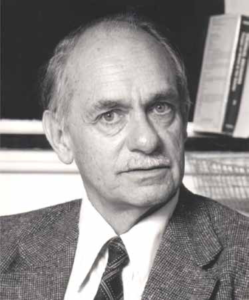Norman Aldridge Travel & Training Award
The Norman Aldridge Travel & Training Award is awarded to a BTS Member in the early stages of their career to advance their research in toxicology by visiting laboratories or research centres (either within the UK or aboard) for the purpose of scientific collaboration or learning new practical skills in toxicology
ApplyA successful candidate will be keen to build their research and/or technical understanding by collaborating with scientists in other institutions and have a clear objective for the collaboration
Annually on a competitive basis
Up to £1500 towards travel and/or accommodation if the applicant needs to stay away from their home (in-line with BTS travel policy). Any surplus may be claimed for expenses incurred by the host institution directly associated with the project (e.g. lab consumables or software licences)
- BTS member for at least 1 year prior to application date
- Applicant must be a member of the BTS in the early stages of their career, which is defined by the criteria for the BTS Network for Early Stage Toxicologists community (NEST)
- Maximum of 1 award per individual
- Open to all BTS members within ten years since last degree, independent of age or place of employment
- This award relates specifically to gaining practical laboratory or computational skills in a research team environment. It is not intended for travel to a scientific conference (see other Travel Awards), training course, to work entirely at home, or to conduct literature reviews.
- Online application at least 3 months prior to visit
- Cover letter outlining reasons for applying and collaboration objective (250 words)
- Full CV including details of relevant career breaks
- Description of work to be conducted at host institution(s) (250 words)
- Brief letter(s) of support from Head(s) of Department(s) of host institution(s)
- Details of application(s) for additional funding sources
- Reflective account of experience for the BTS website upon return
- Application submitted
- Officers review and make recommendation for ratification by the Executive Committee
- Successful applicant notified by Scientific Subcommittee Chair at least 1 month prior to visit
 About Prof Norman Aldridge OBE (1919-1996)
About Prof Norman Aldridge OBE (1919-1996)
Head of MRC Biochemical Mechanisms Section
Professor Norman Aldridge was the founding Chair of the BTS. His interest in toxicology was sparked at an early age, working as 16 year old technician in a dye works. During World War II, he studied the effects of chemical warfare agents at the U.K. Chemical Defence Establishment at Porton Down, whilst studying for his bachelors degree. In 1947, he moved to the Medical Research Council’s Toxicology Unit in Carshalton, Surrey, in order to help identify and manage the risks posed by the burgeoning post war chemical and pharmaceutical industries.
Over the next 40 years he went on to study the mechanism of a wide variety of toxicants, notably organophosphorous insecticides (the subject of his PhD thesis), and many of his research insights continue to protect millions of lives to this day. He collaborated with scientists around the world aiming to train, encourage, and liberate his students. He relished scientific debate, revelling in helping his students and visiting researchers to interpret their experimental data. How apt to remember him than a travel award to aid early career researchers to broaden their horizons, gaining experience and mentorship through scientific collaboration.
You can read more about Norman’s life and work in his obituary in the Independent 1996, and Tox Sci 2001, 59 1, 3–4.
- 2011 Dr Ian Copple
- 2021 Ms Ishita Virmani

